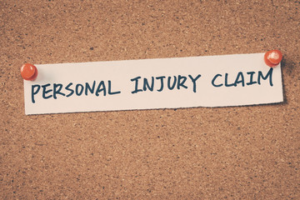Who Pays In A Florida No-Fault?
Someone’s negligence may have caused your injury in a car accident. If so, here are some of the parties that you may be able to sue for compensation:
The Negligent Driver
The most obvious individual to go after in an auto accident case is the driver whose negligence caused your injuries and damages. Hopefully, the driver at-fault will be an insured under an auto insurance policy covering bodily injury coverage.
If so, his or her bodily injury coverage will cover for your damages up to the limits on the policy.
Tip: The driver who the police believe is at fault is generally listed as driver #1 on a Florida auto crash report. Although police officers are human, their determination as to who is at fault might be incorrect.
Vehicle Owner
Florida is the only state in the United States that places strict vicarious liability on a party who lends the motor vehicle to another whose negligence caused damage to another.
Owner Is Liable Just By Owning the Car
This law is popularly referred to as Florida’s dangerous instrumentality doctrine.
The crash report should list the actual owner of the vehicle. Sometimes the owner of the car is different from the driver. In Florida, you can make a claim against both the driver and the owner.
You can fill in the Motor Vehicle Records Request form and send it to the Florida Department of Highway and Safety Motor Vehicles to find out who has title and registration to the vehicle.
In a situation where the vehicle is owned by an employer who allows an employee to use the vehicle during nonworking hours, the dangerous instrumentality doctrine automatically makes the employer liable for the employee’s negligent driving of the vehicle, even if an employer had directed the employee to only use the vehicle for work.
Liability is limited to $100,000 for Pain and Suffering
Under Florida Statute 324.021(9)(b)3, when the owner of a vehicle who is a natural person lends the vehicle to a permissive user, the owner’s liability is limited to just $100,000 per person and up to $300,000 per incident for bodily injury and up to $50,000 for property damage.
If the permissive vehicle user has any insurance with limits less than $500,000 combined bodily injury liability and property damage or is uninsured, the owner of the car shall be liable for up to an additional $500,000 in economic damages only arising out of the use of the vehicle.
The additional liability of the owner for economic damages shall be reduced by amounts actually recovered from the permissive user and from any self-insurance or insurance or covering the permissive user. There is no limit on the liability of the owner for his or her own negligence.
No Limit if Owner of Vehicle is a Business and It’s Being Using for Business Purpose
There is no limit on the liability of an owner of a vehicle that is used for commercial activity in the ordinary course of business, except a firm that meets the definition of “rental company” as defined by the statute.
Rental Car Companies – Liability Usually Limited to $10,000 for Bodily Injury
Florida rental car firms are usually not liable if a driver of their rental vehicle causes a crash. However, there are exceptions to this provision of law.
The most common exception is that anyone
who is injured in an accident caused by a rental car driver may be able to successfully claim at least $10,000 in bodily injury damages and $10,000 in property damages from a rental car company? This is pursuant to Florida’s Financial Responsibility Law.
The Best Part?
This $10,000 bodily injury liability (BIL) limit holds even if the rental car driver did not purchase insurance from the rental car firm.
Bad News?
Some rental car firms have taken the position that they do not require to cover their cars with any BIL insurance.
If a Rental Car Company’s Negligence leads to Accident, There are No Limits
If the rental car company was partly or entirely negligent, then they are on the hook for damages caused to the claimants. There are no caps on the amount of compensation that you can recover.
If the injured person’s only argument is that the rental car firm rented a car to a driver who didn’t have a license, it is a harder case.
References and Resources






